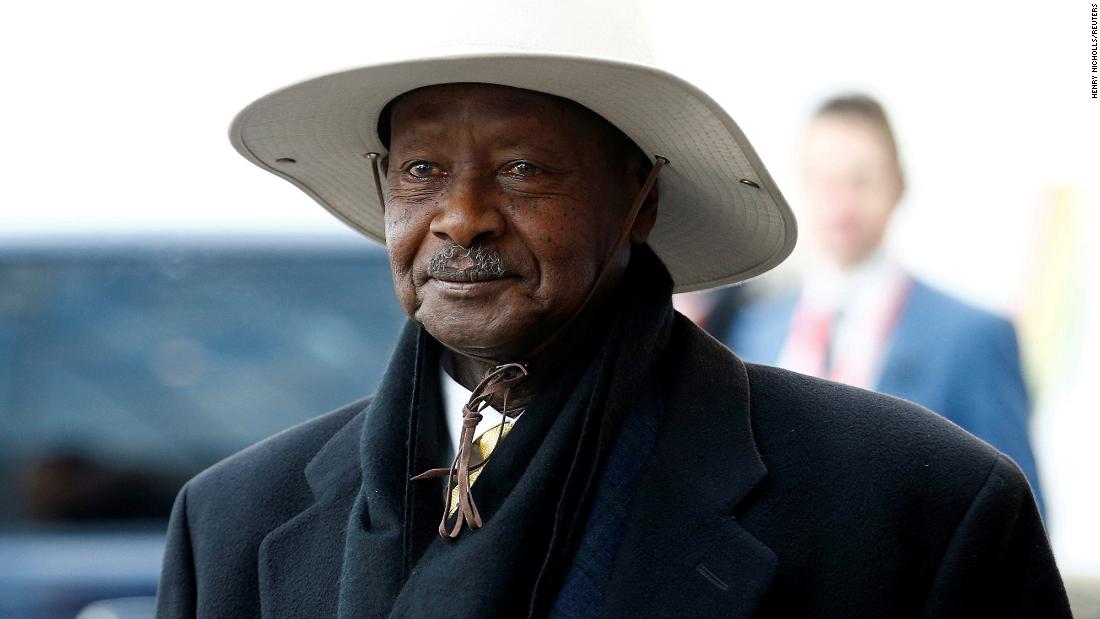
According to the election commission, Bobi Wine – a singer turned politician whose real name is Robert Kyagulanyi – came far in second place in the vote.
Wine said his team is considering all peaceful, nonviolent, and legal options to contest the results, as fears of post-election unrest surfaced after deadly violence in the months leading up to the vote.
“We are the real winners of these elections and therefore what the election committee announced has nothing to do with the real elections that took place,” Wine said immediately after the announcement.
“I can call on all Ugandans to reject the election commission announcement … to reject them with the disdain it deserves.”
The election commission said Museveni won by a landslide, with 58.64% of the nearly 10 million votes cast, while opposition Wine got 34.83% of the vote.
Wine said he had evidence of fraud and harassment, but he did not provide details of that alleged evidence, saying his team would share it once lines of communication were restored. He had previously accused the Election Commission of electoral fraud.
The internet in Uganda has been shut down for days on the basis of a government order. Wine said he struggled to get a hold of his leadership team after being placed under house arrest on Friday.
Museveni, 76, has been in power for more than three decades, and prior to this vote, outside observers believed he was unlikely to give up his position.
Saturday’s results follow months-long campaigns marred by crackdowns by state security over protests against Museveni, as well as the arrests of members of civil society.
Dozens of people were killed in the months leading up to the vote, including 45 who died in protests in November alone, after Wine was arrested for alleged violation of Covid-19 restrictions.
“It is clear that the violence is not coming from the people of Uganda, but from the police and the military,” Wine said when asked if he feared that his call to reject the results would lead to violence.
Ugandans voted in the poll on Thursday when the internet was shut down. In a speech on Tuesday, Museveni confirmed that his government had ordered ISPs to block Facebook and other social media, accusing the platforms of “arrogance.” By the morning of election day, the warrant was extended.
Wine had campaigned extensively on social media because some traditional outlets refused to include him in their election coverage.
The internet blackout has raised questions about the integrity of the vote count and also meant that biometric machines could not register ballots, forcing many polling stations to vote and control manually.
There were reports of late delivery of voting material and insufficient material at many polling stations. Journalists who traveled to Wine’s home for a press conference were turned back by security forces before reaching his home. Many were also forced to leave the national election center, despite accreditation.
Monitors are locked out
Before casting his vote on Thursday, Wine turned to the media, complaining that the majority of his voters across the country had been prevented from observing the election by police. Ugandan law guarantees that any candidate may be represented at polling stations.
He reiterated his call to the United States and the European Union to hold Museveni and his government “accountable for free and fair elections” and accused the leader of forcing the country to “hold elections in the dark” through his internet outage.
The excessive use of force by law enforcement and security agencies has seriously affected this electoral process, Borrell added.
Museveni told CNN on Tuesday that he would “accept the results” if he lost.
“If I lost a fair election, I naturally accept the results because Uganda is not my home,” he told CNN’s Christiane Amanpour.
“If the people in Uganda don’t want me to help them with their problems, I will happily handle my personal problems,”
Wine ‘under siege’
On Friday, Wine told CNN that his life was in danger when his home was “under siege” by the military.
Wine said his phone was locked and his internet connection was down for some time when security forces raided his home the day after the polls opened.
Kampala Police spokesman Luke Owoyesigire, who appeared on NTV, said Wine was not arrested.
“We just put in place security in the area, not much,” he said.
Owoyesigire said state security responded in an effort to secure Wine’s home and protect the candidate after two individuals were seen trying to access the home by jumping over the fence, adding that one of the individuals was arrested.
But a CNN reporter near Wine’s residence said Saturday there was still a large military presence around the compound, as well as military helicopters and drones circling above it.
Wine’s lawyer, David Lewis Rubongoya, told CNN that Wine was still under house arrest.
“The military doesn’t allow people to go in. They just read all the results they want. These elections were just rigged in such a blatant way,” he said.
“It is a sign of intimidation of the regime, but they are also very afraid of the people. They lost these elections in a very bad way. Bobi Wine is such a unifying factor, so they are afraid that the people will revolt. will come, so that’s why they’re keeping him under some kind of house arrest. It’s illegal and unconstitutional. “
He added that Wine’s team was looking at all legal options to challenge the results once they are all released.